If you’re interested in a tech career, read on. The industry is growing rapidly, and new opportunities are emerging every day, so it’s important to determine the job you’re interested in early on to improve your chances of finding job success. But which types of IT jobs should you pursue?
Fortunately, there are plenty of exciting jobs to choose from. Whether you’re a software engineer or a project manager, there’s something for everyone. Pursuing a career in tech has several benefits, and a high-paying salary is one of them. It’s not only the most dynamic and developing sector on the globe; it also exhibits rapid expansion.
So, if you’re a young professional contemplating a new career path or finding the best resources for your business, you’ve come to the right place. The following article summarizes the best IT jobs that are in demand in 2023.
By the end of this article, you’ll understand the roles of different IT jobs so you can climb your career ladder or hire the best talent for your business to grow.
9 career-worthy types of jobs in IT
There are several jobs in IT, an industry that continues to need professionals as the world increasingly becomes digital. As technology advances, IT companies are ready to adopt digital transformation in their operations and are trying their hardest to get their hands on the best talent.
This means more transactions, communications, and even recruiting operations will be made easier using online tools. If you’re just starting, there is a wide range of choices you can choose from.
You can have a career in fast-paced startups, innovative tech companies, and small IT departments. Many of these jobs offer opportunities for advancement and competitive pay. It’s important to avoid common mistakes when job seeking. Here are some IT Jobs to help you better understand what’s out there.
1. Data scientist
The request for data science skills has grown remarkably over the years, and the ‘boom’ it has created in the job market isn’t going away anytime soon. In fact, just the average annual salary is between $97,000 and $108,000 – a good start to a rewarding career.
Data-science-related jobs will continue to rule the roost in 2023, increasing the value of data scientists. The significant increase in data collection via individuals and companies multiplies the availability of information via the internet.
Because of this, the presented data can become extensively complex and need better architecture. For example, look at stock data or company statistics. It’s becoming clearer by the day that data processing has enormous value; that is where a data scientist comes in.
1.1 — Primary responsibilities
The primary duties of a data scientist are to collect, analyze, and interpret large chunks of information with the help of data architecture pipelines to ensure meaningful insights. Simply put, companies need data scientists to help them organize data and make insightful decisions.
An experienced data scientist will know how to scout for meaningful information with whatever data he comes across and, in turn, help the company make the right decisions.
1.2 — Key skills of a data scientist include
- Programming
- Deep learning
- Machine learning
- Communication skills
- Identifying opportunities
- Processing large sets of data
2. Software engineer
A career in software engineering is quickly becoming one of the most exciting paths in the IT industry. According to recent trends, the growth in employment opportunities for software developers is expected to remain over 20%.
Digital experts now understand the importance of software engineering and its impact – both good and bad on a company’s bottom line. So what do software engineers do?
2.1 — Primary responsibilities
A software engineer typically applies software engineering principles in designing and creating software. This includes all stages of the software development process, including designing, developing, maintaining, and testing.
For instance, the software used on our computers, phones, and TVs is the result of software engineering. Software that you can purchase, like an automated email virtual assistant or intranet software, is also made by software engineers to help streamline your business operations and improve the efficiency of employees.
On the other hand, experts in software development are also responsible for developing software for analyzing and planning marketing campaigns for different companies.
Let’s take a sample client here. If an admission coaching firm taps them to create an automated training program for different educational exams, they should first study and analyze the project, doing intensive research along the way to create a solution that meets client expectation.
2.2 — Key skills of a software engineer include
- Subject matter experts
- Software development
- Computer programming and coding
- Problem-solving and logical thinking
- Object Oriented Design (OOD) using software equipment
- Understanding complex software programs such as Adobe and Photoshop
3. Data security analyst
In recent times, securing data has become increasingly important. With every sector moving its informational systems online, from financial institutions to the education industry, there has been an ever-increasing demand to protect computer systems and networks from data breaches.
The emerging technology-related security also brings related security risks; thus, the demand for data security professionals remains high and is expected to be the 10th growing occupation over the next decade.
3.1 — Primary responsibilities
Data security analysts are trained professionals with advanced degrees who work in many IT departments. The average salary for a data security analyst is $74,475 per year in the US. These security experts plan and safeguard digital data from unwanted access, corruption, or threat.
To prevent such intrusions, they thoroughly study and analyze methods of cyber attacks and the behaviors of cybercriminals.
3.2 — Key skills of a data security specialist include
- Knowledge of security across various platforms
- Relevant experience in computer forensics skills
- Previous experience working with data in daily operations
- An understanding of in-depth hacking skills including knowledge of Mathematics and substantive expertise
4. Web developer
With faster network speeds and the emergence of smartphones, developers are taking full advantage of these innovative technologies. Fortunately, web development is growing as an industry, and the need for web developers increases each year, with over 19,000 jobs expected by 2029.
4.1 — Job responsibilities
Web developers are primarily responsible for planning and developing software applications using HTML, CSS, and MySQL. They help with effective website development leading to more sales.
While most web developers are responsible for developing software solutions and maintaining a company’s website, the developer’s day-to-day work highly depends on constantly evolving internet innovations.
Most web developers start their career with a single focus, usually as back-end or front-end developers, and ultimately move on to be full-stack developers. As a web developer, you can work for a company, agency, or as a freelancer.
4.2 — Key skills of a web developer include
- Analytical skills
- JavaScript skills
- Back-end basics
- HTML/CSS skills
- Administrative tasks
- Responsive design skills
- Testing and debugging skills
4.3 — Web developer vs. network administrator & web designer
Often used interchangeably, web developer and web/network administrator are completely different terms. A web administrator is responsible for maintaining websites and ensuring they work perfectly.
Their daily operations mainly include setting up an organization’s web hosts using platforms like WooCommerce host, granting access to specific users, and adding email accounts for staff.
On the other hand, a web developer mainly develops software applications for business clients using web forms and other front-end functionalities. It’s also important to consider the role of web designers.
While site developers and designers work together, their functions are completely different. A site designer focuses on designing a website’s layout and visual appearance. Their primary goal is to create something that is not only visually pleasing but also streamlined and easy to use.
This is crucial because the perception of the audience about a brand influences a customer’s purchase intention. Web designers typically utilize easy navigation, sitemaps, and visual graphics on a site’s design.
In creating modern website designs, they included unique typography and hamburger menus that make a customer more comfortable navigating the site. Look at my favorite example, AthSport’s web design. They went for a clean and clutter-free display that makes navigation easy. Web designers for this eCommerce store used their creative skills to design an easy-to-navigate website to create better experiences for visitors.

5. Marketing analyst
The job growth for market analysts in the US will increase by 19% by 2031. In the past, marketing was just one big shot in the dark, as you couldn’t be sure where any given lead came from. Marketing analytics allows you to gather the information needed to find high-fit leads and allows businesses to understand their customers better.
5.1 — Primary responsibilities
Marketing analysts study retail conditions to help companies understand what the customers want, making it one of the best business practices. They gather data on consumer demographics, needs, and buying habits using interviews, questionnaires, and literature reviews.
Hence, marketing insights are at an all-time high as companies scramble to analyze and predict consumer buying trends and stay on top of the competition.
Typically, marketing analysts, especially those specializing in the digital sphere, also master marketing tactics for inbound, outbound, and social media marketing. This includes in-depth knowledge of email marketing, content marketing, Facebook marketing, Instagram marketing, and TikTok marketing.
5.2 — Key skills of a marketing analyst include
- Attribution modeling
- Present results to clients and managers
- Technical skills such as digital media and design
- Customer service know-how in business decisions
- Assess the effectiveness of marketing campaigns and strategies across different business fields
6. User experience designer
The rise of the internet and social media has directed the power and balance of producers toward consumers. Companies are responding to this change by creating positive experiences for customers. An effective user experience (UX) designer is at the top of this list.
It’s no surprise, then, that according to stats, there will be a 3% year-on-year growth (through 2028) in demand for industrial UX designers.
6.1 — Primary responsibilities
User experience is about how a person interacts when communicating with a system. This includes mobile applications, websites, or human-device interaction. While many companies design user experiences, the term is mostly associated with the digital design of websites.
The role of a UX designer is to provide positive experiences and overall satisfaction to keep a user true to the product or brand. You can think of a UX designer as the customer’s advocate, always looking for ways to enhance the customer experience.
Typically, a UX designer will create an understanding of who their customers are. Each website caters to different customer needs, so the method will differ.
For instance, a UX designer for a company selling virtual wish cards will focus more on creating an emotional connection to improve customer experience than a sports company looking to advertise sportswear that will focus more on personal touch.
Additionally, a user experience designer is involved with all the facets of product development regarding purchasing, usability, and functionality. The right UX designer will check all the boxes needed to increase traffic and boost sales.
Essentially, this includes the designer’s role in understanding the importance of UX specifics when targeting a particular audience and product. Most UX designs for websites targeting adult audiences will focus mainly on visual accessibility and responsiveness compared to a children’s website where engagement is the main purpose.
Similarly, different products will elicit different design responses. UX designers for a website selling face masks will have different color schemes or graphics compared to a company selling makeup products.
To sum up, an effective UX designer will blend both user needs and business goals to help brands make consistently successful products.
6.2 — Key skills of a user experience designer include
- Researching
- Decision mapping
- Basic front-end coding
- Effective communication
- Visual design and design software
7. Project management
According to a job type growth study, the request for successful project management (and skilled project managers) will continue to expand as an estimated 22 million project management jobs will be accessible by 2027 and beyond.
This is no coincidence as companies are expecting to deliver more radical products and services, so they understand the need for effective project management tied to executing them. Another reason why project management is essential today is that the need for alignment and visibility has substantially increased.
Today, it’s easier for project managers to get bogged down in the weeds of project work and ultimately lose sight of other organizational priorities. Project management allows the company to see the “big picture” and understand the projects to meet those goals.
7.1 — Primary responsibilities
Typically, project managers play the primary role in planning, executing, monitoring, and closing out projects. In other words, they are in charge of the entire project scope and the success or failure of a project. The role requires a strategic business mindset, conflict resolution, and problem-solving abilities.
7.2 — Key skills of a project manager include
- Leadership
- Risk management
- Scheduling and time management
- Relevant experience in technical expertise
8. Computer programmer
In the digital world that we are in now, the ability to interact with computers is essential. Hence many new jobs will depend on programming because services and products are becoming digitized.
In addition, applications are written using programming languages. Since programming and having basic knowledge of programs is important today, it will be much more critical in the future as our lives are becoming increasingly dependent on them. So what does a computer programmer do?
8.1 — Primary responsibilities
Typically, programmers or application developers are responsible for writing codes to help software applications operate more efficiently. Their duties include developing and managing computing infrastructure and different software systems.
They are also responsible for reviewing current software programs and finding ways to update and enhance them for the user.
8.2 — Key skills of a computer programmer include
- Attention to detail
- Excellent communication
- Comprehension of Algebra topics
- Ability to fix any error in programs
- Ability to work under pressure and meet deadlines
9. Quality assurance tester
Moving to the digital era, the influence of software is far more significant, making protecting software from failing important to many companies. Hence, the need for quality assurance testers has risen significantly, with an expected 308,390 new jobs filled by 2029 and with an average salary of around $60,000.
9.1 — Primary responsibilities
Quality assurance testers are engineers or technicians responsible for uncovering issues within a company’s website, software, products, or any other user experience malfunction.
Thus, a quality assurance tester is critical in delivering high-quality functioning software and web applications to users. This is common for gaming systems, mobile applications, and other forms of technology that need further testing.
A QA tester’s responsibilities include providing continuous support to the development team throughout its software development cycle. For instance, a QA in the gaming industry will likely focus on finding and reproducing game errors.
By tracking and reporting bugs in computer games such as an anagram solver or a word finder, a QA specialist can identify certain issues affecting its performance, such as poor manipulation of understanding words.
In addition, QA testers are in charge of finding flaws, tracing error sources, and problem-solving independently in QA teams. This way, they work closely with developers to improve the workplace’s functionality, effectiveness, and productivity.
9.2 — Key skills of a quality assurance tester
- Dev tools
- Front-end skills
- Programming languages
- Understanding different operating systems and operations
Conclusion
These top 9 jobs will be in high demand in 2023 and beyond. With the digital age we are in now, there is room for several options to choose from in the technology field offering high salaries and great opportunities.
If you’re passionate about learning new concepts and applying them to other problems, you can try out to be a programmer. Likewise, if you want to organize and plan out projects you can be a project manager.
However, with all these jobs in mind, it’s important to choose something that not only interests you but also helps in enhancing your career journey. For greater chances of choosing the right career path in tech, you can research these different roles to see which ones fit you best and then apply accordingly.
Did you find this post helpful? Subscribe for more articles like this one.



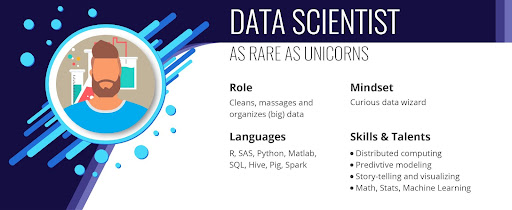
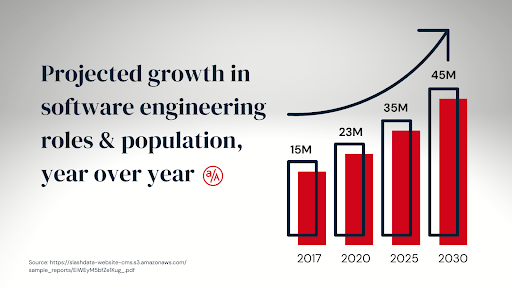
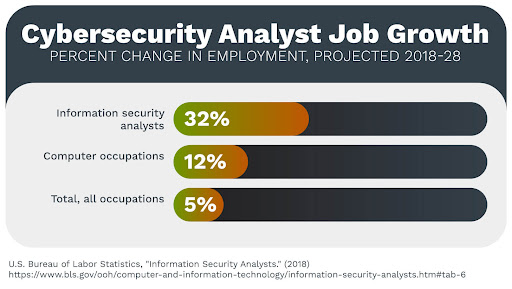

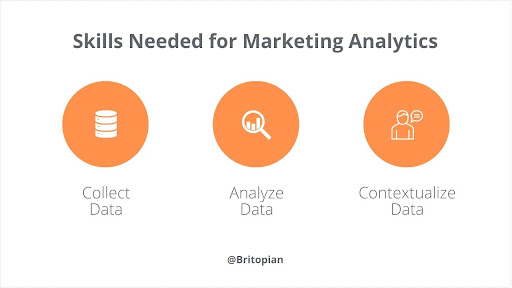
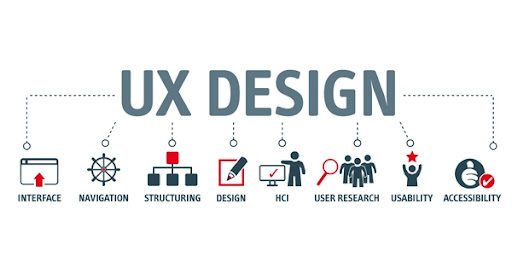

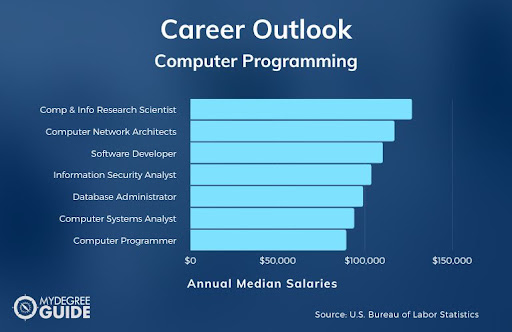
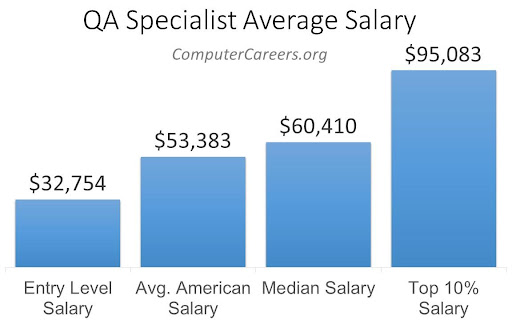



0 Comments